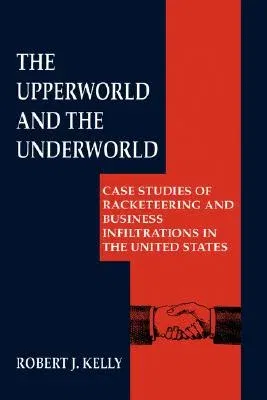From Damon Runyan's colorful tough guys in black shirts and white ties
to recent media coverage of John Gotti, the `dapper don', public
depictions of racketeers in the United States have drawn attention away
from the true nature of organized crime and its extensive penetrations
into mainstream business. The Upperworld and the Underworld: Case
Studies of Racketeering and Business Infiltrations in the United
States strips away the romantic patina and reveals the significant
impact of racketeering on vital segments of American industry.
In this informative study Robert Kelly explores two fundamental
questions: `Why is organized crime a serious problem in some businesses
and industries, and not in others?' and `What are the consequences of
racketeering activities for labor organizations and businesses tainted
by a criminal presence?' He examines the blurred demarcation between the
legitimate and illegitimate sectors of society and explains the reasons
for this occurrence. In the process, Kelly provides a distinct vantage
point for understanding organized crime, not just as an `outlaw fringe'
preying on society, but as a disturbingly integral element of our social
and economic structure. Moreover, he confirms a widely held thesis that
organized crime is not merely parasitic but an institutional component
of American society.
The Upperworld and the Underworld affords a fascinating view of the
current state of organized crime in the United States and the rise of
nontraditional criminal organizations in new immigrant communities. The
volume is an essential resource for students and scholars concerned with
issues of crime and its effects on the economy.

